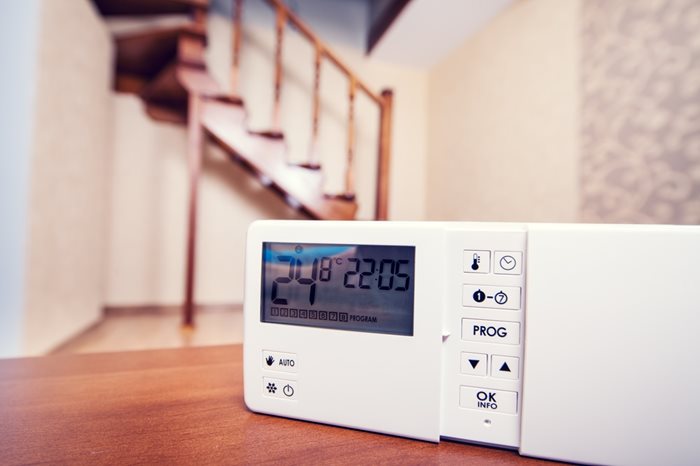Smart meter owners report higher, not lower, bills

|
| Having a smart meter installed at home very seldom means lower energy bills, according to new survey findings published on April 2, 2019 by electrotechnical trade body the Electrical Contractors' Association (ECA). |
In the ECA’s recent YouGov survey of adults who are eligible for a smart meter, just 1 in 14 respondents with a smart meter (7%) said that having one had reduced their energy bills, while 1 in 11 (9%) said they had increased. This is despite 1 in 4 (23%) reporting that the main reason for having a smart meter installed was to reduce their energy bills.
Overall, nearly half of respondents (47%) said they were ‘very unlikely’ to have a smart meter installed during the next 12 months, with 20% ‘fairly unlikely’ to do so. Just 5% of respondents said they were ‘very likely’ to do so, with a further 13% ‘fairly likely’ to have one installed in the next year.
[edit] ECA comment
ECA Energy Advisor Luke Osborne commented: “These ECA findings suggest that smart meter users seldom report lower energy bills – which seems at odds with the government’s ‘save money’ message.
“Smart meters can play a role in stimulating a shift towards a lower-carbon future. However, the government needs to do far more to incentivise change and explain the benefits of using smart meters if they are to increase consumer confidence and take-up in the near future.”
While 61% of smart meter owners reported that they had ‘no issues’ with their smart meter, almost half (45%) reported they had experienced ‘no benefits’ in having one. The benefit that came out on top for respondents with a smart meter was ‘more accurate billing’ (29%), while 1 in 11 (9%) cited ‘connectivity issues’ as a problem.
Furthermore, fear of data breaches and cyber attacks came out as the top reason (30% of respondents) for not getting a smart meter, among those unlikely to do so. However, of those with a smart meter, less than 1% reported any issue with data security or hacking.
Luke Osborne added: “Public awareness of data security has increased significantly recently. These ECA findings show that the government must do more to explain to the public why smart meters do not present a security risk from hacking or other data breaches.”
Less than 1 in 3 adults surveyed who are eligible for a smart meter (32%) have a smart meter installed, despite a government commitment for all UK homes to have one by 2020.
[edit] About this article
This article was written by the Electrical Contractors’ Association (ECA) and first appeared on its website in April 2019. It can be accessed here.
[edit] Related articles on Designing Buildings Wiki
- Building management systems.
- Data from smart energy meters.
- Electromagnetic meters.
- European connected and smart home market.
- Internet of things.
- Kilowatt hour.
- Smart buildings.
- Smart meter.
- Smart Meters Bill.
- Smart technology.
- The future of electricity in domestic buildings, a review.
--ECA
Featured articles and news
UKCW London to tackle sector’s most pressing issues
AI and skills development, ecology and the environment, policy and planning and more.
Managing building safety risks
Across an existing residential portfolio; a client's perspective.
ECA support for Gate Safe’s Safe School Gates Campaign.
Core construction skills explained
Preparing for a career in construction.
Retrofitting for resilience with the Leicester Resilience Hub
Community-serving facilities, enhanced as support and essential services for climate-related disruptions.
Some of the articles relating to water, here to browse. Any missing?
Recognisable Gothic characters, designed to dramatically spout water away from buildings.
A case study and a warning to would-be developers
Creating four dwellings... after half a century of doing this job, why, oh why, is it so difficult?
Reform of the fire engineering profession
Fire Engineers Advisory Panel: Authoritative Statement, reactions and next steps.
Restoration and renewal of the Palace of Westminster
A complex project of cultural significance from full decant to EMI, opportunities and a potential a way forward.
Apprenticeships and the responsibility we share
Perspectives from the CIOB President as National Apprentice Week comes to a close.
The first line of defence against rain, wind and snow.
Building Safety recap January, 2026
What we missed at the end of last year, and at the start of this...
National Apprenticeship Week 2026, 9-15 Feb
Shining a light on the positive impacts for businesses, their apprentices and the wider economy alike.
Applications and benefits of acoustic flooring
From commercial to retail.
From solid to sprung and ribbed to raised.
Strengthening industry collaboration in Hong Kong
Hong Kong Institute of Construction and The Chartered Institute of Building sign Memorandum of Understanding.
A detailed description from the experts at Cornish Lime.
























